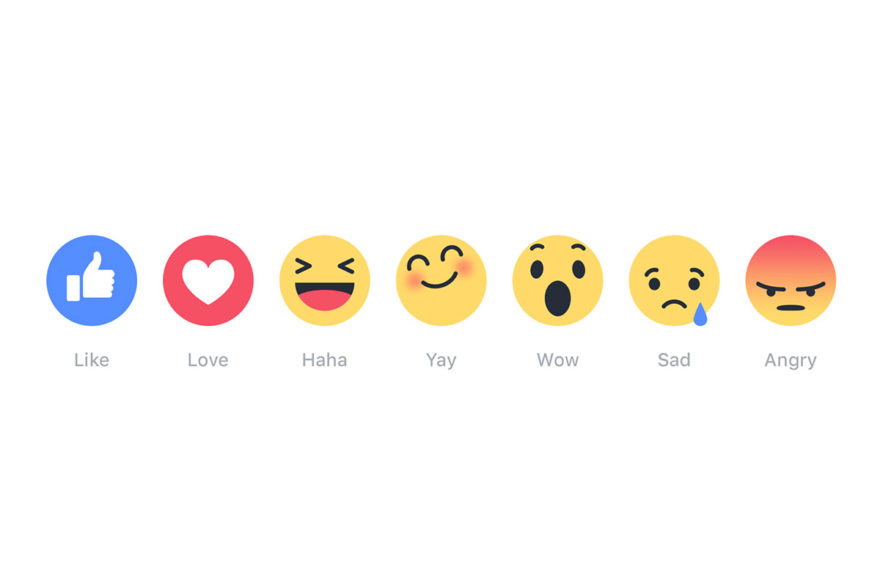The biggest news this week surely went down yesterday, when Facebook finally launched its new Reactions feature worldwide. What many might see as just a few new set of emojis is a major change for the social giant. Don’t believe it? After 9 years of the Like monopoly, Facebook has finally acknowledged the need for new ways of interacting with the content on the platform.
So, instead of just liking a post, you and everyone else we’ll be able to love, laugh or wow at, or be sad or angry about it. It’s a welcome feature for people uncomfortable with liking a post out of sympathy for someone sharing sad news or for those that believe that liking a video don’t actually show how much they love it. But what about companies and their pages? Is this a good news for them or is a dangerous feature for people to hate on a particular brand? And how will it impact on small businesses’ marketing?
Going deeper and deeper
One thing’s for sure – all has changed for marketers and advertisers. Though we all learned to target audiences based on their likes and lack of them, now we’ll have to adjust to the fact that the potential “emotions” have widen – and so has the information that comes with them. We can’t say for sure that Reactions will impact on how, where and for whom the content will be displayed (Facebook just won’t tell us). That can be a matter of concern. Or not.
Look, as marketers, we’ve grown accustomed to the idea of gathering data for analysis. We thrive on that, we can’t live without it and the businesses that depend on us certainly wouldn’t grow without that. In that scenario, Reactions are a deeper look into what our target audience feels about the content we share. Now, the feedback will provide more insight about what actually works and what you should never ever try again.
Future marketing campaigns and strategies will surely benefit from that information, since you’ll be able to recalibrate them according to the desired effect. It’s a win-win situation for everybody – or it will be in the future. For now, Facebook is treating all reactions equally, meaning that wowing or “saddening” (saddening?) a post will bring more of that stuff to you simply because you reacted to it. But it won’t be long for that to change.
Deep, ok, but how accurate?
This kind of news always spawn two types of reactions – one from the people that’s ready to see glass half full and one from the people that see the glass empty and shattered on the floor. The latter has already been seen making the rounds, with people saying that Reactions will make it easier for people to troll and show their despise for certain content.
They also warn us that “negative” reactions (like Sad or Angry) could be used by the platform in such an ambiguous way that it may end up hurting certain pages whose content mostly generates that type of reactions. In other words, posts that angry too many people would get buried in your News feed, even when there might be several possible reasons for that reaction.
That kind of criticism is interesting, since Reactions poses a complex system that can’t be ignored. You can be sympathetically angry because you’re joining the OP’s anger or you can be genuinely angry because of what OP said. The two emotions are quite opposite and can’t be read equally and its impact and weigh on Facebook’s algorithm shouldn’t be the same.
However, this criticism surely is overlooking Facebook’s ability to analyze the changed they introduce in their platform. After all, they took 9 years to introduce these Reactions, so they surely won’t rush a major change in their algorithm without a thorough study. It remains to be seen what will happen in the future but for now, Reactions seem like a promising feature with lots of juicy data for all of us. Isn’t that something good?


